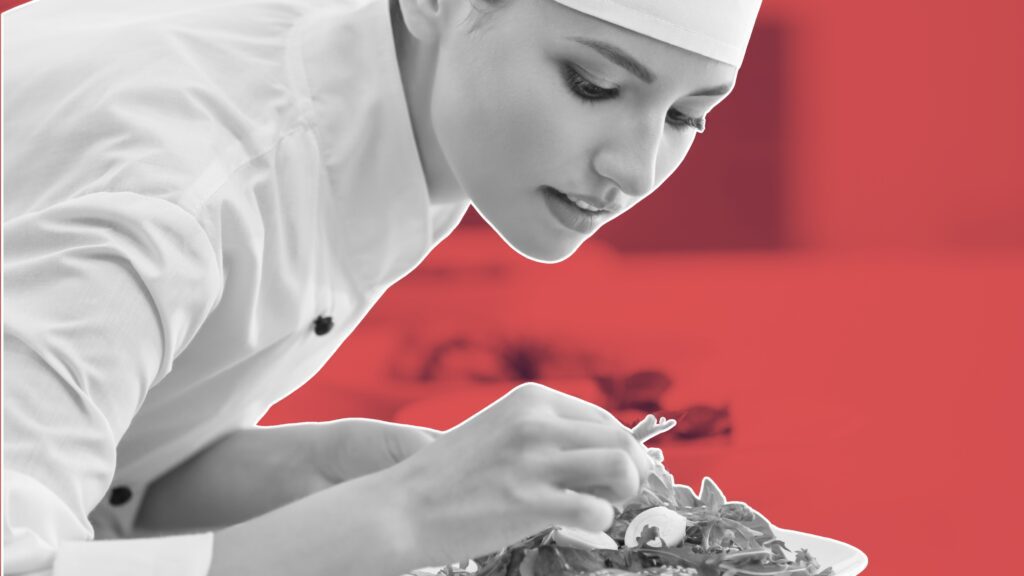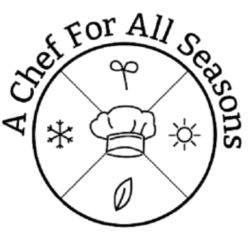TLDR: Success in today’s culinary world goes beyond cooking talent. From leadership and cost control to creativity and sustainability, the best chefs are multi-skilled professionals who adapt to trends, lead high-performing teams, and delight guests consistently. This guide breaks down the 20 most essential skills chefs need to thrive in modern kitchens.
Introduction
Being a great chef today means more than just preparing delicious food. The culinary industry is evolving fast—with new dietary expectations, sustainability goals, and tech-driven tools transforming kitchen life. Whether you’re just starting out or looking to level up your career, mastering a combination of hard and soft skills will keep you competitive, confident, and in demand. Here, we dive into the 20 core skills every chef needs to build a sustainable, fulfilling, and future-ready career.
Table of Contents
- Knife Skills & Core Techniques
- Menu Planning That Makes Profit
- Food Safety and Clean Kitchen Practices
- Time Management Under Pressure
- Confident Leadership & Team Building
- Staying Creative & Ahead of Trends
- Catering to Dietary Restrictions
- Adaptability in a Changing Culinary World
- Cost Control and Budgeting
- Multitasking Without Sacrificing Quality
- Communication That Drives Results
- Plating for Visual Impact
- Cultivating Passion and Positive Energy
- Building a Network Within the Industry
- Sustainable Kitchen Practices
- Leveraging Tech in the Kitchen
- Physical Endurance and Self-Care
- Interpersonal Skills and Customer Connection
- Mentoring Future Talent
- Embracing Global Cuisine
- Conclusion
- FAQs
1. Knife Skills & Core Techniques
A strong foundation in essential techniques is where every great chef begins. From precise knife work to mastering sautéing, braising, roasting, and more—these core skills affect speed, presentation, and consistency. Understanding how to work intuitively with ingredients helps you create outstanding dishes under any condition.
2. Menu Planning That Makes Profit
Building a menu is part creativity, part strategy. It must reflect your brand, seasonal availability, and pricing that aligns with your food cost goals. A well-balanced menu delights guests and supports your bottom line by minimizing waste and maximizing profit margins.
3. Food Safety and Clean Kitchen Practices
Nothing undermines a chef’s reputation faster than a food safety issue. Knowledge of proper food storage, cleaning routines, allergen management, and hygiene standards is non-negotiable. Following regulations protects your guests—and your career.
4. Time Management Under Pressure
The kitchen moves fast. From prep to service, being able to prioritize tasks, stick to timelines, and lead a team during high-volume rushes makes you indispensable. Great chefs are great time managers.
5. Confident Leadership & Team Building
Chefs are natural leaders—responsible for guiding teams, mentoring junior staff, and setting the tone for the kitchen. Effective delegation, accountability, and motivating others are key to running a productive, harmonious operation.
6. Staying Creative & Ahead of Trends
In today’s food culture, innovation sets chefs apart. Whether you’re updating classics or experimenting with molecular gastronomy, being creative keeps your menu fresh and your customers coming back. Staying informed about emerging culinary trends is crucial to staying relevant.
7. Catering to Dietary Restrictions
Today’s guests come with diverse dietary needs—vegan, gluten-free, low-carb, allergy-conscious. You’ll need the knowledge and sensitivity to accommodate these requests without compromising taste or experience.
8. Adaptability in a Changing Culinary World
Culinary trends, kitchen tech, and guest expectations are always shifting. Successful chefs stay curious and agile—learning new techniques, pivoting with market changes, and welcoming feedback.
9. Cost Control and Budgeting
Running a profitable kitchen isn’t just the manager’s job. Chefs must understand food cost percentages, waste reduction, portion control, and how to create dishes that balance value and margin.
10. Multitasking Without Sacrificing Quality
Juggling multiple tasks—plating, coordinating orders, checking inventory—is an everyday part of the job. Strong multitasking keeps service smooth, ensures quality, and maintains team morale.
11. Communication That Drives Results
Clear, timely communication in the kitchen avoids errors, delays, and frustration. From calling out orders to managing feedback, good communication keeps your team efficient and your guests satisfied.
12. Plating for Visual Impact
The best chefs know that we eat with our eyes first. How you present a dish elevates its perceived value and enhances the overall experience. Balance, color, and plating finesse are skills worth mastering.
13. Cultivating Passion and Positive Energy
Passion for food is contagious. It fuels your resilience during long shifts, inspires your team, and keeps you striving for excellence. It’s also what guests notice in every dish you send out.
14. Building a Network Within the Industry
From sourcing rare ingredients to finding your next opportunity, industry relationships are invaluable. Connecting with other chefs, suppliers, and restaurateurs helps you stay informed, inspired, and supported.
15. Sustainable Kitchen Practices
Guests increasingly value ethical dining. Reducing food waste, sourcing responsibly, and optimizing energy use not only benefit the planet—they position your kitchen as modern and mindful.
16. Leveraging Tech in the Kitchen
From inventory software to smart appliances, tech is transforming kitchen operations. Embracing digital tools can boost efficiency, reduce errors, and free you up to focus on creativity.
17. Physical Endurance and Self-Care
Cheffing is physically demanding. Long hours, fast pacing, and heat can wear you down. Stamina, fitness, and knowing how to care for your body will help you sustain your performance and avoid burnout.
18. Interpersonal Skills and Customer Connection
When chefs engage with guests, the experience becomes more memorable. Whether you’re running an open kitchen or visiting the dining room, interpersonal skills help build customer loyalty and deepen your impact.
19. Mentoring Future Talent
Strong chefs lift others up. Training and mentoring new team members not only strengthens your kitchen but contributes to a better industry. It’s a legacy worth building.
20. Embracing Global Cuisine
A wide knowledge of global flavors allows you to diversify your menu, surprise your guests, and build a richer understanding of culinary culture. Chefs who explore the world through food offer something truly special.
Conclusion
Great chefs are never just cooks—they’re leaders, innovators, mentors, and problem-solvers. Mastering these 20 essential skills will not only elevate your personal career but also improve every kitchen you work in.
Ready to take your next step? Browse current job openings or post your role on The Chef Network—the industry’s go-to site for connecting culinary talent with exciting opportunities.
What skills do modern chefs need beyond cooking?
Today’s chefs must master leadership, budgeting, communication, creativity, and adaptability—not just culinary techniques.
Is tech knowledge essential for chefs now?
Yes. From inventory systems to smart kitchen tools, tech skills improve efficiency and are expected in many modern kitchens.
How can I develop soft skills in the kitchen?
Prioritize clear communication, team support, mentoring, and self-care. These build stronger teams and lead to long-term success.












